Forensic Accounting Sydney | Fraud Investigation
Facing a challenging situation requiring discreet investigation? Peak PI offers comprehensive private investigation services in Sydney, catering to individuals, businesses, and legal professionals. Our expertise spans a range of investigative needs, including background checks, integrity testing, surveillance, due diligence, debt collection, and crucial support for legal cases.
We understand the sensitivity and confidentiality required in these matters, and our experienced team is committed to providing accurate and reliable results while upholding the highest ethical standards. Whether you're dealing with a suspected infidelity, vetting a potential employee, or navigating a complex business dispute, Peak PI offers tailored solutions to help uncover the truth. Contact us today for a confidential consultation and learn how we can assist you.
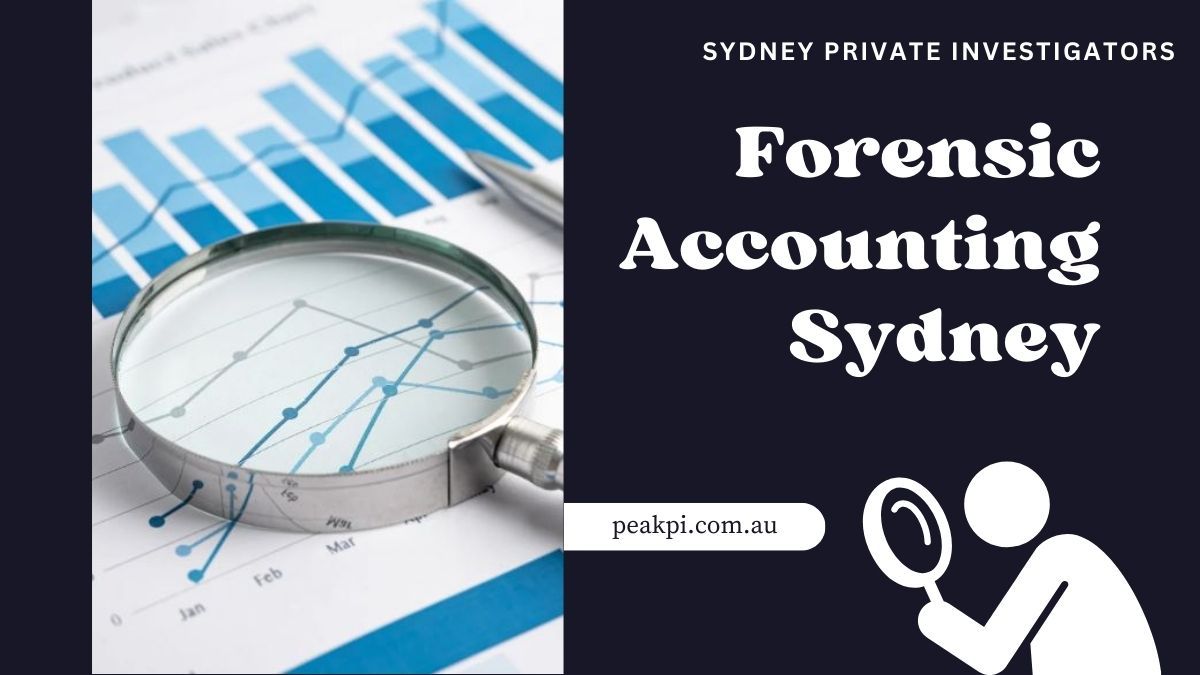
What is Forensic Accounting?
Understanding Forensic Accounting
Forensic accounting combines investigative skills with financial analysis to uncover financial misconduct. It's a specialized field where certified fraud examiners and other experts meticulously examine financial records, transactions, and other relevant documentation. This in-depth analysis helps uncover hidden assets, identify fraudulent activities, and provide valuable evidence for legal proceedings.
Forensic accounting is crucial for resolving financial disputes, supporting litigation, and ultimately bringing financial wrongdoers to justice. Its purpose is to provide a clear, accurate, and unbiased understanding of complex financial situations, enabling informed decision-making and effective legal strategies
How Forensic Accounting Works
A forensic accounting investigation typically begins with a thorough assessment of the situation and the client's objectives. This is followed by a meticulous process of evidence gathering, including reviewing financial records, conducting interviews, and analyzing data.
Various methodologies are employed, such as data analysis techniques to identify patterns and anomalies, interviews with key personnel to gather information and perspectives, and a comprehensive review of all relevant documents.
Financial records are carefully analyzed to identify discrepancies, irregularities, and potential indicators of fraud or other financial misconduct. This systematic approach ensures a comprehensive understanding of the financial situation and provides a solid foundation for legal action or other resolutions.
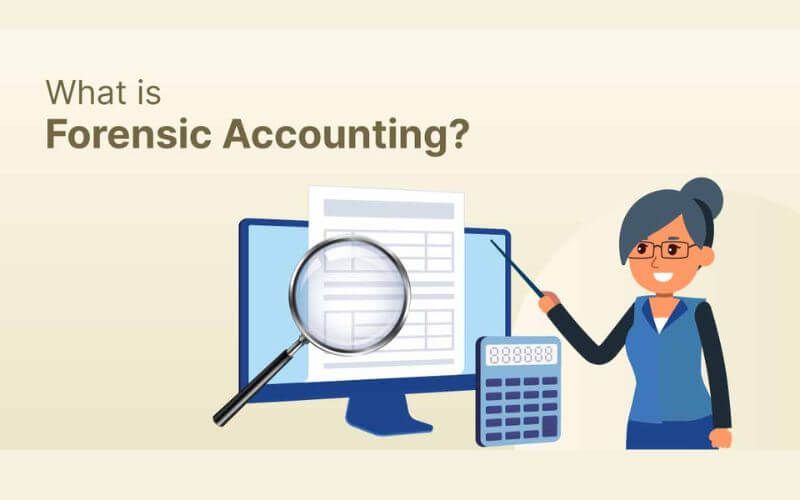
Who Uses Forensic Accounting Services?
Forensic accounting services are invaluable for a wide range of clients, including businesses, individuals, legal professionals, government agencies, and financial institutions. Businesses often utilize these services for internal fraud investigations, mergers and acquisitions due diligence, and shareholder disputes.
Individuals may benefit from forensic accounting during divorce proceedings, inheritance disputes, or suspected financial mismanagement by trustees. Legal professionals rely on forensic accountants to provide expert testimony and support in litigation involving financial matters.
Government agencies and financial institutions also employ forensic accounting techniques to investigate financial crimes, regulatory breaches, and other complex financial issues. The expertise provided by forensic accountants is crucial for ensuring fair and accurate resolutions in a variety of financial disputes.

Types of Forensic Accounting Services
Fraud Investigations
Forensic accountants investigate a wide range of fraudulent activities, including financial theft, employee fraud, securities fraud, insurance fraud, and money laundering. Employee fraud, for instance, can involve embezzlement, payroll manipulation, or expense reimbursement schemes.
Securities fraud encompasses activities like insider trading and market manipulation. Insurance fraud can take various forms, such as staged accidents or inflated claims. Forensic accountants employ a variety of methods to uncover these fraudulent activities, including detailed transaction analysis, asset tracing, interviews, and background checks.
Their expertise in identifying red flags and following the money trail is crucial in bringing perpetrators to justice and recovering lost funds.
Litigation Support
Forensic accountants play a crucial role in legal proceedings by providing expert analysis and testimony. They assist legal teams in damage calculations, dispute resolution, and evidence presentation.
Their expertise helps clarify complex financial issues for judges and juries. A forensic accountant serving as an expert witness can provide credible and objective opinions on financial matters, strengthening a client's case. Their ability to analyze financial data and present it in a clear and understandable manner is essential for achieving a favorable outcome in legal disputes.
Due Diligence
Due diligence is essential in business transactions, particularly mergers and acquisitions. Forensic accountants conduct thorough reviews of financial statements, business valuations, and other relevant financial information to assess the financial health and risks associated with a target company.
This process helps identify potential liabilities, uncover hidden risks, and ensure informed decision-making. A comprehensive due diligence review protects investors and stakeholders by providing a clear understanding of the financial landscape before any transaction is finalized.
Other Forensic Accounting Services
Forensic accounting expertise extends to various other areas, including bankruptcy investigations, debt default investigations, tax evasion investigations, and divorce proceedings. In bankruptcy cases, they can help determine the cause of financial distress and identify potential fraudulent activities.
They can also assist in investigating debt defaults, tracing assets, and recovering funds. In divorce proceedings, forensic accountants play a vital role in identifying and valuing marital assets and uncovering hidden income or expenses. Their specialized skills are invaluable for ensuring fair and equitable outcomes in these complex situations.

Benefits of Forensic Accounting
Benefits for Businesses
Proactive fraud detection and prevention measures, facilitated by forensic accounting, offer significant advantages to businesses. Implementing strong internal controls and conducting regular fraud risk assessments can deter potential fraudsters and minimize the risk of financial losses.
Forensic accounting helps mitigate losses by identifying and quantifying the extent of fraud, enabling businesses to recover stolen assets and pursue legal action against perpetrators. Early detection of fraud also protects a company's reputation and strengthens stakeholder confidence.
By demonstrating a commitment to ethical financial practices and robust corporate governance, businesses can maintain trust and protect their long-term sustainability.
Benefits for Individuals
Forensic accounting can be instrumental in helping individuals recover stolen assets and navigate complex financial situations. Whether it's a case of identity theft, investment fraud, or embezzlement, forensic accountants can trace the flow of funds, identify hidden assets, and provide the necessary evidence to support legal action and asset recovery.
Beyond financial recovery, forensic accountants also provide valuable support to victims of fraud, helping them understand the nature of the crime and navigate the often-daunting legal processes. This support can be crucial for individuals dealing with the emotional and financial stress associated with being a victim of fraud.
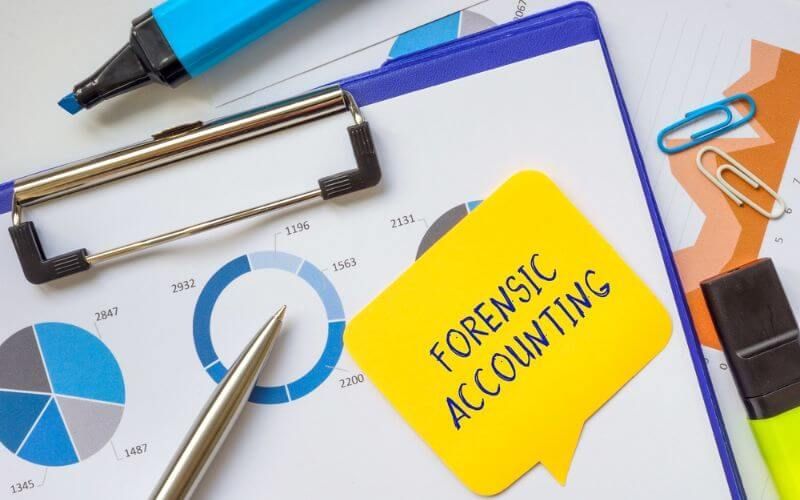
Forensic Accounting Careers and Qualifications
Career Paths in Forensic Accounting
Forensic accounting offers diverse and rewarding career paths. Entry-level positions often involve assisting senior forensic accountants in investigations, conducting research, and analyzing financial data.
With experience and further qualifications, professionals can progress to roles with increasing responsibility, such as leading investigations, managing teams, and providing expert testimony. Senior roles often involve specializing in specific areas of forensic accounting, such as fraud investigations, litigation support, or valuation services.
The career progression in forensic accounting allows individuals to develop specialized expertise and contribute to complex financial investigations at various levels.
Essential Skills and Qualifications
A successful career in forensic accounting requires a combination of technical expertise and strong interpersonal skills. Analytical skills are essential for interpreting complex financial data, identifying patterns, and drawing informed conclusions. An investigative mindset, coupled with strong attention to detail, is crucial for uncovering hidden information and pursuing leads.
Effective communication skills are necessary for presenting findings clearly and concisely, both orally and in writing. Professional certifications, such as Certified Fraud Examiner (CFE), Certified Public Accountant (CPA), Chartered Alternative Investment Analyst (CAIA), Certified Financial Planner (CFP), Financial Risk Manager (FRM), and Financial Modeling & Valuation Analyst (FMVA), demonstrate a commitment to professional development and enhance career prospects. These certifications provide specialized knowledge and credibility in the field.
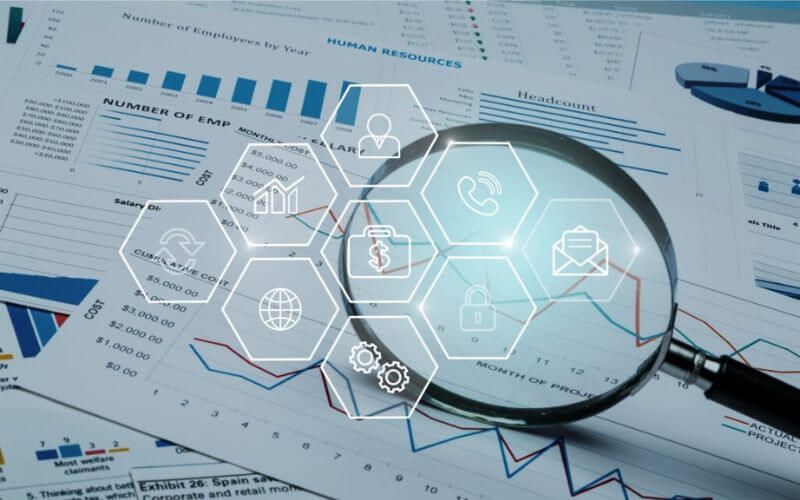
FAQs about Forensic Accounting
What is the cost of forensic accounting services?
The cost of forensic accounting services varies depending on the complexity of the case, the scope of the investigation, and the expertise required. Factors such as the number of documents to be reviewed, the number of interviews to be conducted, and the need for expert testimony can all influence the overall cost.
Simple cases involving limited scope may have a fixed fee structure, while more complex investigations often involve hourly rates for the forensic accountant's time. It's essential to discuss your specific needs with a forensic accounting professional to obtain a clear and accurate cost estimate. They can provide a tailored proposal outlining the scope of work and the associated costs, ensuring transparency and helping you make informed decisions.
Providing as much detail as possible upfront about the nature of your case will allow for a more accurate assessment of the time and resources required.
Is forensic accounting legal and ethical?
Forensic accounting is a legal and ethical profession governed by strict professional standards and codes of conduct. Forensic accountants operate within the bounds of the law, ensuring that their investigations are conducted legally and ethically.
They adhere to principles of confidentiality, objectivity, and integrity, maintaining the highest professional standards throughout the investigative process. Their work often involves sensitive information and requires discretion and adherence to privacy regulations. Professional certifications, such as the CFE, emphasize ethical conduct and require adherence to a strict code of professional ethics.
This commitment to legality and ethics ensures the credibility and reliability of forensic accounting findings. Furthermore, forensic accountants often work in conjunction with legal professionals, ensuring that all evidence gathered is admissible in court and complies with legal requirements. Their role is to uncover the truth within the framework of the legal system.
How is confidentiality maintained during a forensic accounting investigation?
Confidentiality is paramount in forensic accounting investigations. Forensic accountants are bound by strict confidentiality agreements and professional ethics to protect sensitive information. They implement rigorous security measures to safeguard client data and communications, ensuring that all information remains confidential throughout the investigation.
This includes secure storage of documents, encrypted communication channels, and adherence to strict data protection protocols. Client information is only shared with authorized parties as required by law or with explicit client consent. Maintaining confidentiality is crucial for protecting the integrity of the investigation and preserving the trust of clients.
Furthermore, open communication with the client about the confidentiality protocols in place helps build trust and ensures transparency throughout the process. Forensic accountants understand the sensitive nature of their work and prioritize protecting the privacy of all parties involved.
How long does a forensic accounting investigation typically take?
The timeframe for a forensic accounting investigation varies significantly depending on the complexity of the case, the scope of the investigation, and the availability of information. Simple cases with readily accessible information may be completed within a few weeks, while more complex investigations involving extensive data analysis, multiple interviews, or asset tracing can take several months or even longer.
Factors such as the responsiveness of third parties in providing information and the potential for legal challenges can also impact the timeline. A forensic accountant will provide an estimated timeframe based on the initial assessment of the case, but it's important to understand that unforeseen circumstances can influence the overall duration.
Regular communication throughout the investigation keeps the client informed of progress and any changes to the estimated completion date.
What kind of evidence do forensic accountants use?
Forensic accountants utilize a wide range of evidence in their investigations, including financial records, bank statements, invoices, contracts, emails, and other electronic communications.
They also gather evidence through interviews with key personnel, background checks, and public record searches. The specific types of evidence gathered depend on the nature of the case and the allegations being investigated. For example, in a fraud investigation, evidence might include discrepancies in financial records, unusual transaction patterns, or evidence of concealed assets.
Forensic accountants meticulously analyze all collected evidence to identify patterns, anomalies, and other indicators of financial misconduct. Their expertise lies in interpreting this evidence and presenting it in a clear and compelling manner to support their findings. They also ensure that all evidence is gathered and handled in a manner that maintains its integrity and admissibility in legal proceedings.
Peakpi - Providing Forensic Accounting Services in Sydney
Peak PI is a leading provider of forensic accounting services in Sydney, offering expert investigative solutions for businesses, individuals, and legal professionals. Our team comprises highly qualified and experienced professionals, including Certified Fraud Examiners (CFEs), Certified Public Accountants (CPAs), and other certified specialists with extensive experience in uncovering financial misconduct.
We provide a comprehensive range of forensic accounting services, including fraud investigations, litigation support, due diligence reviews, bankruptcy investigations, and expert witness testimony.
Our expertise extends to various types of fraud, including asset misappropriation, financial statement fraud, and corruption. At Peak PI, we understand the sensitive nature of these investigations and maintain the highest standards of confidentiality and discretion throughout the process
Get a free quote today! Contact us by:
- Phone number: 0401036356
- Email: constellation2401@gmail.com
- Website:
https://peakpi.com.au/
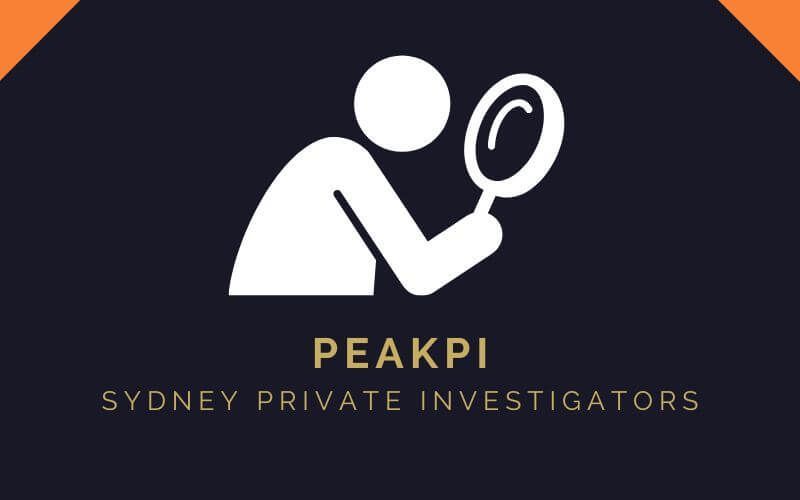
Read More:
- Find a Private Investigator: Tips for Choosing the Best in Sydney
- Regulatory Compliance: Essential Guide for Sydney Corporations
- Consumer Rights Complaint: Know Your Rights in Sydney
In today's complex financial landscape, forensic accounting plays a vital role in uncovering financial misconduct, mitigating losses, and ensuring accountability. From fraud investigations to litigation support and due diligence reviews, the expertise of forensic accountants provides invaluable insights and support for businesses, individuals, and legal professionals.
By proactively addressing potential financial risks and seeking expert assistance when needed, you can protect your financial interests and achieve positive outcomes. Contact Peak PI today for a free, no-obligation consultation to discuss your specific needs and learn how our forensic accounting services can benefit you.


